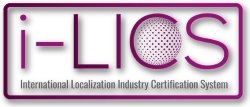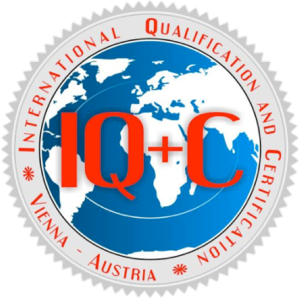
The Benefits of ISO
20771 for Clients, Legal Translators, and Service Providers
ISO 20771, titled “Legal translation services — Requirements for translation services,” is a critical international standard that establishes guidelines specifically for legal translation services. This standard is designed to enhance the quality and reliability of translations in legal contexts, offering distinct advantages to clients, legal translators, and service providers alike. Let’s explore the benefits for each stakeholder:
Benefits for Clients
- Quality Assurance: ISO 20771 sets stringent quality controls
for legal translations, ensuring that documents are accurate and
appropriate for legal purposes. Clients can have confidence that the
translated documents are precise, which is vital for legal proceedings and
international business transactions.
- Risk Reduction: Adherence to ISO 20771 helps minimize
the risk of misinterpretations and errors that could lead to legal
consequences or misunderstandings in legal agreements. This is
particularly crucial in legal settings where the stakes are high.
- Consistency: The standard promotes consistency in
legal translation services, which is essential when dealing with complex
legal documents across different languages. This uniformity helps maintain
the integrity of the translated legal texts.
- Credibility: Employing ISO-compliant translation services enhances the credibility of the legal documents, facilitating their acceptance in judicial proceedings and by regulatory bodies across various jurisdictions.
Benefits for Legal Translators
- Professional Standards: ISO 20771 encourages legal translators
to adhere to high professional standards, including maintaining
confidentiality and demonstrating competence in legal and linguistic
knowledge. This promotes professionalism and skill
enhancement.
- Career Opportunities: Legal translators working within
ISO-compliant frameworks can benefit from greater professional recognition
and career opportunities. Compliance with a recognized standard can make
them more attractive to potential employers or clients who value quality
and reliability.
- Clear Work Processes: The standard provides detailed guidelines on the translation process, from handling client information to delivering the final product. This clarity can help translators manage their workflows more efficiently and effectively, reducing errors and increasing productivity.
Benefits for Service Providers
- Competitive Advantage: Service providers adhering to ISO 20771
can differentiate themselves in a crowded market by offering certified
legal translation services. This can be a significant competitive edge,
attracting clients who need assurance of compliance with legal standards.
- Operational Efficiency: Implementing standardized processes can
streamline operations, reduce overhead costs, and improve turnaround
times. These efficiencies make service providers more capable of handling
large volumes of work without compromising on quality.
- International Reach: Compliance with an internationally
recognized standard allows service providers to operate across borders
more effectively. This global recognition can help attract international
clients, expanding their business reach.
- Building Trust: Following ISO 20771 helps service providers build trust with clients, who may feel more assured knowing that their sensitive legal documents are handled according to internationally accepted standards.
Conclusion
ISO 20771 is pivotal
for enhancing the quality and reliability of legal translation services. It
offers comprehensive benefits to clients by ensuring accurate and risk-free
translations, supports legal translators in maintaining high professional
standards, and enables service providers to optimize their operations and
expand their market presence. Through these benefits, ISO 20771 contributes
significantly to the effectiveness and integrity of legal translation services
globally.

